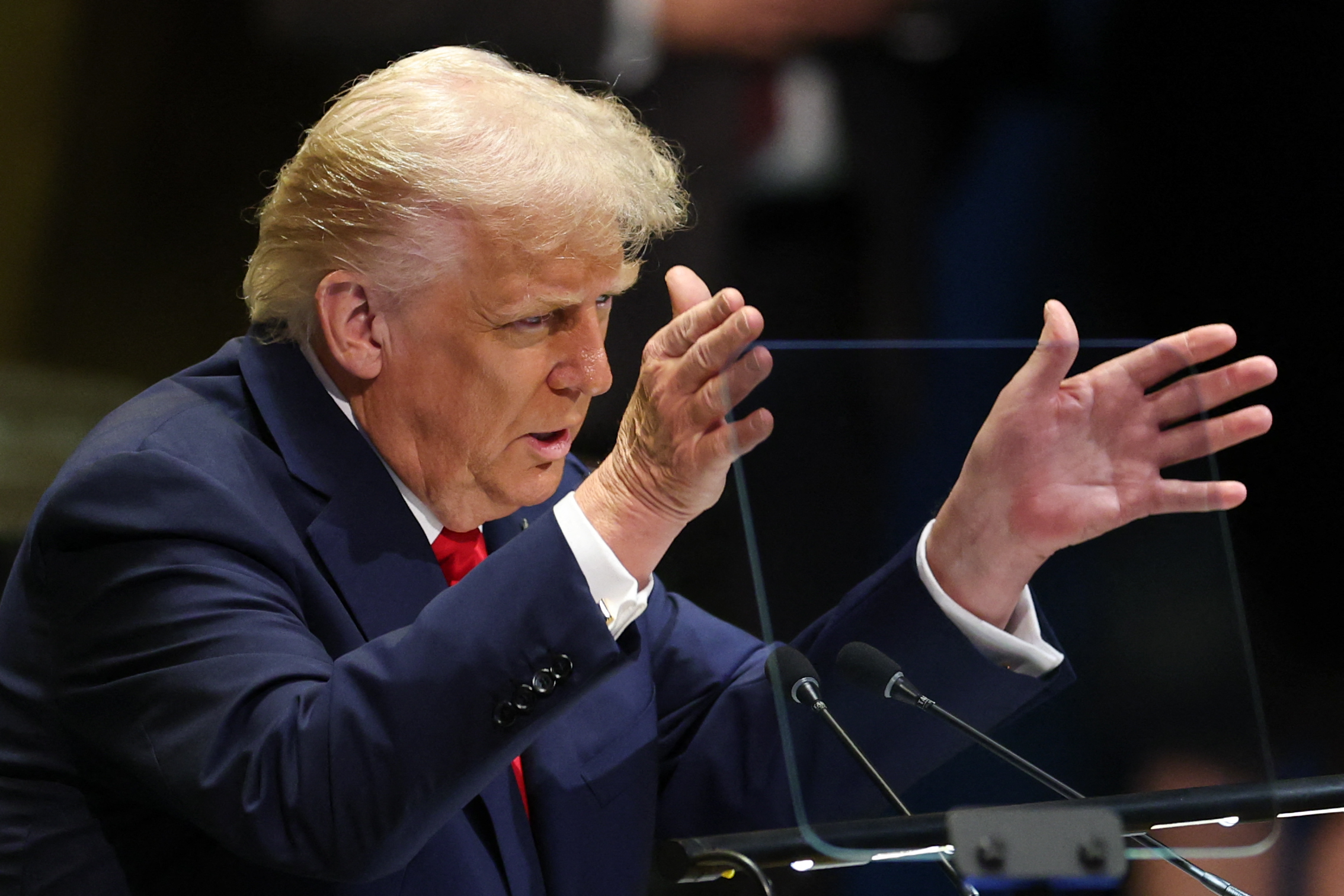Politics
Trump Administration Proposes Historic Low Refugee Cap of 7,500

The Trump administration is considering a dramatic reduction in the refugee admissions cap for the fiscal year 2026, proposing an unprecedented limit of just 7,500 individuals. This potential policy shift prioritizes white South Africans of Afrikaner descent, marking a significant departure from the previous year’s cap of 125,000 refugees authorized under former President Joe Biden.
Should this plan be finalized, it would represent the lowest refugee admissions figure in the history of the United States. President Donald Trump, who resumed office in January 2025, had previously suspended refugee admissions while reviewing national interests. In February, he issued an executive order to prioritize Afrikaners, claiming that they face racial persecution and violence in South Africa. These assertions have been firmly rejected by the South African government, which labeled them as unfounded.
Impact on Refugee Policy and International Relations
Reports indicate that the first group of 59 Afrikaners arrived in the U.S. in May, with total arrivals reaching 138 by early September. Despite the administration’s focus on this demographic, neither the White House, the State Department, nor the Department of Homeland Security has publicly commented on the proposed cap for the 2026 fiscal year, which commenced on October 1, 2025. The New York Times was the first to report on these developments.
Refugee advocates have condemned this proposal. John Slocum, Executive Director of Refugee Council USA, emphasized that the new cap would jeopardize lives, separate families, and undermine national security and economic growth. Initial discussions among Trump officials had considered a cap between 40,000 and 60,000, making the current proposal reflect a more stringent tightening of U.S. refugee policy.
During a recent side event at the United Nations General Assembly, senior officials from the Trump administration urged other nations to join a global campaign aimed at rolling back asylum protections. This initiative could significantly alter the international refugee framework established post-World War II, potentially redefining America’s role in global humanitarian efforts.
Criticism and Future Implications
If implemented, this policy could reinforce Trump’s “America First” approach, which critics argue threatens decades of U.S. leadership in protecting displaced populations. As the situation continues to unfold, the implications for both domestic policy and international relations remain profound. The proposed cap on refugee admissions not only reflects a shift in U.S. immigration policy but also raises critical questions about the future of humanitarian efforts worldwide.
-

 Health3 months ago
Health3 months agoNeurologist Warns Excessive Use of Supplements Can Harm Brain
-

 Health4 months ago
Health4 months agoFiona Phillips’ Husband Shares Heartfelt Update on Her Alzheimer’s Journey
-

 Science2 months ago
Science2 months agoBrian Cox Addresses Claims of Alien Probe in 3I/ATLAS Discovery
-

 Science2 months ago
Science2 months agoNASA Investigates Unusual Comet 3I/ATLAS; New Findings Emerge
-

 Science2 months ago
Science2 months agoScientists Examine 3I/ATLAS: Alien Artifact or Cosmic Oddity?
-

 Entertainment2 months ago
Entertainment2 months agoLewis Cope Addresses Accusations of Dance Training Advantage
-

 Entertainment5 months ago
Entertainment5 months agoKerry Katona Discusses Future Baby Plans and Brian McFadden’s Wedding
-

 Science2 months ago
Science2 months agoNASA Investigates Speedy Object 3I/ATLAS, Sparking Speculation
-

 Entertainment5 months ago
Entertainment5 months agoEmmerdale Faces Tension as Dylan and April’s Lives Hang in the Balance
-

 Entertainment2 days ago
Entertainment2 days agoAndrew Pierce Confirms Departure from ITV’s Good Morning Britain
-

 World3 months ago
World3 months agoCole Palmer’s Cryptic Message to Kobbie Mainoo Following Loan Talks
-

 World4 weeks ago
World4 weeks agoBailey and Rebecca Announce Heartbreaking Split After MAFS Reunion









